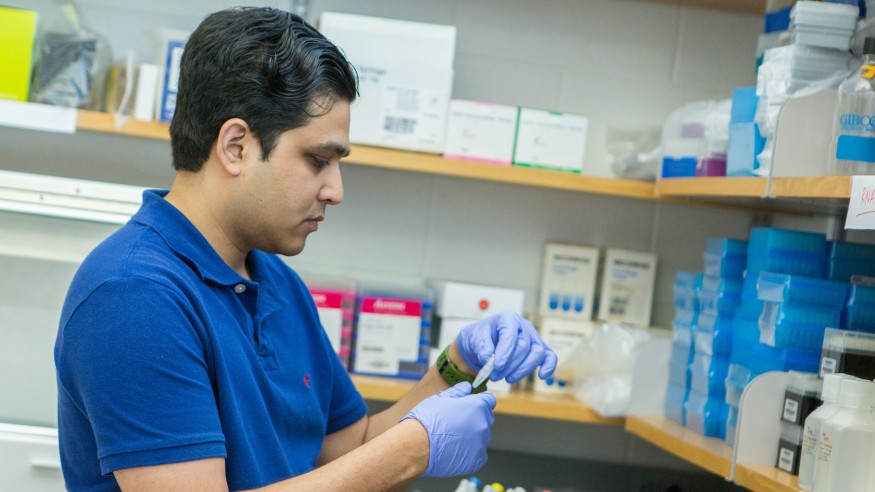
Ohio Wesleyan Expands Neuroscience Program
University Adds Computational Neuroscience Major and Two New Major Tracks
DELAWARE, Ohio – Ohio Wesleyan University is expanding its neuroscience program with a second major, computational neuroscience, and two new tracks within its existing neuroscience major, a behavioral/cognitive track and a molecular/cellular track.
The changes combine to make Ohio Wesleyan’s David O. Robbins Program in Neuroscience “one of the most cutting-edge neuroscience programs at a liberal arts college, integrating faculty and courses in biology, psychology, physics, and mathematics,” said Jennifer R. Yates, Ph.D., program director and associate professor of psychology and neuroscience.

“To our knowledge,” Yates continued, “Ohio Wesleyan is the only liberal arts college with two faculty members in computational neuroscience. The creation of this major distinguishes Ohio Wesleyan as the place for students who are interested in studying computational neuroscience in a liberal arts setting.”
Neuroscience is defined broadly as the study of the biological basis of behavior, cognition (perception), and other brain functions. Computational neuroscience (sometimes referred to as theoretical neuroscience) investigates how neural systems process information and then uses advanced mathematics to create theoretical models of these processes. Previous breakthroughs in the field have included modeling how the brain stores memories and designing brain-machine interfaces that enable thought-controlled prosthetic limbs.
Ohio Wesleyan’s two computational neuroscientists – Pamela B. Pyzza, Ph.D., of the mathematics and computer science department, and Christian G. Fink, Ph.D., of the physics and astronomy department – focus their research, respectively, in modeling olfaction (sense of smell) and epilepsy.
The university also has redesigned its existing neuroscience major to create two tracks that align with common research structures discipline-wide as well as with OWU faculty expertise.
The first track, behavioral/cognitive neuroscience, involves the study of topics such as cognitive processes, emotion, behavior, the connectivity of brain regions, and the neuro-regulation of physiological processes. Track-related research at Ohio Wesleyan includes Yates’ study of the behavioral and cellular consequences of spinal cord injury and a video-game-training study by Kira M. Bailey, Ph.D., of the psychology department, that examines neural changes in cognitive control.
The second track, molecular/cellular neuroscience, involves the study of topics such as synaptic function, neuronal development, genetic regulation, cellular ultrastructures, and subcellular processes. The topics are highlighted at Ohio Wesleyan by the research of Suren S. Ambegaokar, Ph.D., of the botany-microbiology department, who studies the molecular pathology of neurodegeneration, such as Alzheimer’s disease, and neuronal immunity to viral infections.
Founded in 1994, Ohio Wesleyan’s neuroscience program is a highly interdisciplinary major that prepares students for a wide range of research, clinical, and other careers. Learn more about the program and related faculty research at www.owu.edu/neuroscience.
Founded in 1842, Ohio Wesleyan University is one of the nation’s premier liberal arts universities. Located in Delaware, Ohio, the private university offers 87 undergraduate majors and competes in 23 NCAA Division III varsity sports. Ohio Wesleyan combines a challenging, internationally focused curriculum with off-campus learning and leadership opportunities to connect classroom theory with real-world experience. OWU’s 1,675 students represent 43 U.S. states and territories and 33 countries. Ohio Wesleyan is featured in the book “Colleges That Change Lives,” listed on the latest President’s Higher Education Community Service Honor Roll with Distinction, and included in the U.S. News & World Report and Princeton Review “best colleges” lists. Learn more at www.owu.edu.
